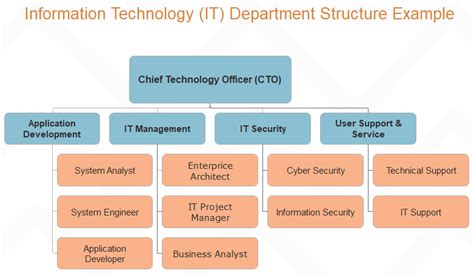In today's fast-paced digital landscape, technology operations (Tech Ops) plays a vital role in ensuring the smooth functioning of modern IT infrastructure. As the backbone of any organization's technological framework, Tech Ops is responsible for designing, implementing, and maintaining the systems that enable businesses to operate efficiently. In this article, we will delve into the world of Tech Ops, exploring its importance, key components, and best practices for success.
The Importance of Tech Ops
Tech Ops is often the unsung hero of IT infrastructure, working behind the scenes to ensure that systems are running smoothly, and that downtime is minimized. The importance of Tech Ops cannot be overstated, as it directly impacts an organization's ability to deliver products and services to customers. Without a robust Tech Ops function, businesses risk experiencing technical difficulties, data breaches, and reputational damage.
Key Components of Tech Ops
A well-structured Tech Ops function consists of several key components, including:
Infrastructure Management
Infrastructure management involves the design, implementation, and maintenance of an organization's technological infrastructure, including servers, networks, and storage systems. This component ensures that the underlying systems are scalable, secure, and reliable.
Monitoring and Logging
Monitoring and logging are critical components of Tech Ops, as they enable teams to detect and respond to technical issues in real-time. This includes monitoring system performance, tracking errors, and analyzing logs to identify areas for improvement.
Incident Management
Incident management is the process of identifying, responding to, and resolving technical incidents. This component ensures that technical issues are addressed quickly and efficiently, minimizing downtime and impact on business operations.
Change Management
Change management involves planning, implementing, and reviewing changes to IT systems. This component ensures that changes are made in a controlled and predictable manner, minimizing the risk of technical issues or downtime.
Best Practices for Tech Ops Success
To ensure the success of Tech Ops, organizations should adopt the following best practices:
Adopt a DevOps Culture
DevOps is a cultural and professional movement that aims to improve the speed and quality of software releases. By adopting a DevOps culture, organizations can foster collaboration between development and operations teams, improving the efficiency and effectiveness of Tech Ops.
Invest in Automation
Automation is critical to the success of Tech Ops, as it enables teams to streamline processes, reduce manual errors, and improve efficiency. Organizations should invest in automation tools and platforms to support infrastructure management, monitoring, and incident management.
Foster Collaboration
Collaboration is key to the success of Tech Ops. Organizations should foster collaboration between development, operations, and other stakeholders to ensure that technical issues are addressed quickly and efficiently.
Continuously Monitor and Improve
Tech Ops is a continuous process, and organizations should continuously monitor and improve their systems and processes. This includes monitoring system performance, tracking errors, and analyzing logs to identify areas for improvement.
Benefits of a Well-Structured Tech Ops Function
A well-structured Tech Ops function brings numerous benefits to an organization, including:
- Improved system reliability and uptime
- Enhanced security and compliance
- Increased efficiency and productivity
- Better collaboration and communication between teams
- Improved incident management and response times

Common Challenges in Tech Ops
Despite its importance, Tech Ops faces several challenges, including:
- Limited resources and budget constraints
- Complexity of modern IT infrastructure
- Difficulty in recruiting and retaining skilled talent
- Balancing the needs of different stakeholders
- Managing technical debt and legacy systems
Overcoming Challenges in Tech Ops
To overcome these challenges, organizations can adopt the following strategies:
- Invest in automation and AI-powered tools
- Foster a culture of collaboration and innovation
- Develop a comprehensive training and development program
- Prioritize continuous monitoring and improvement
- Adopt a cloud-first strategy to reduce complexity

Conclusion
In conclusion, Tech Ops is a critical component of modern IT infrastructure, ensuring the smooth functioning of systems and minimizing downtime. By adopting a DevOps culture, investing in automation, and fostering collaboration, organizations can overcome common challenges and achieve success in Tech Ops.
We hope this article has provided valuable insights into the world of Tech Ops. Share your thoughts and experiences in the comments below, and don't forget to share this article with your colleagues and peers.
Gallery of Tech Ops Images






Frequently Asked Questions
What is Tech Ops?
+Tech Ops is the technical operations function within an organization, responsible for designing, implementing, and maintaining IT infrastructure.
Why is Tech Ops important?
+Tech Ops is critical to the success of an organization, as it ensures the smooth functioning of IT systems and minimizes downtime.
What are the key components of Tech Ops?
+The key components of Tech Ops include infrastructure management, monitoring and logging, incident management, and change management.
